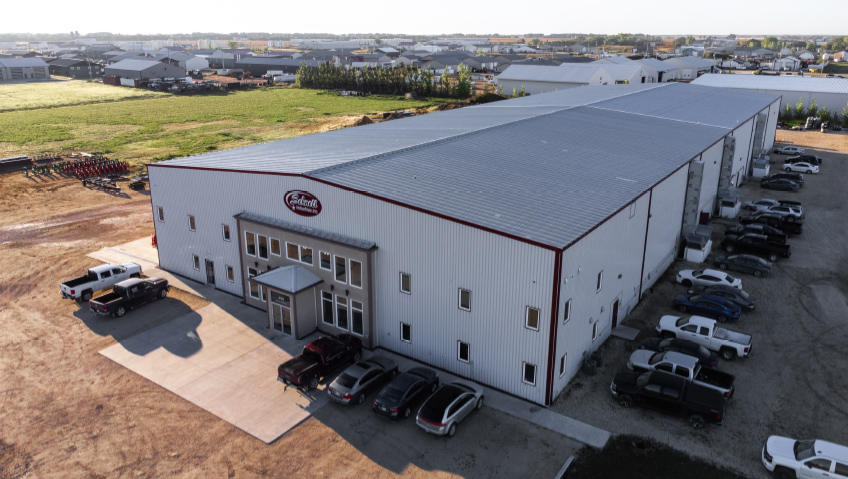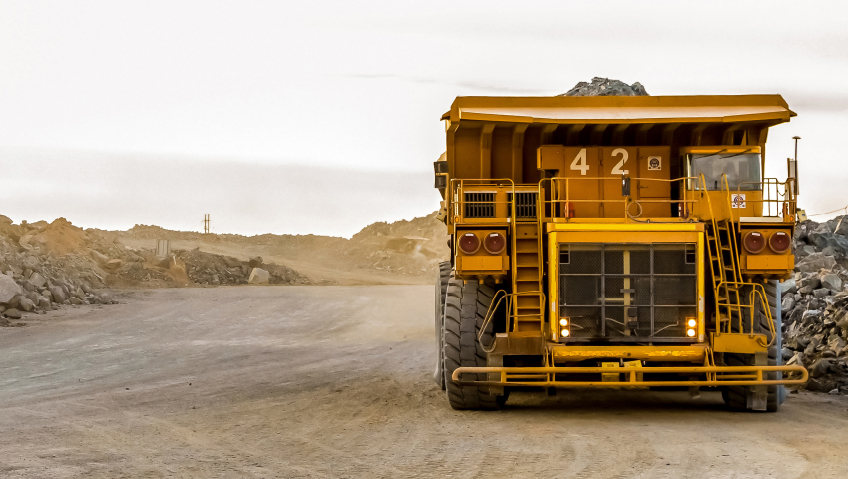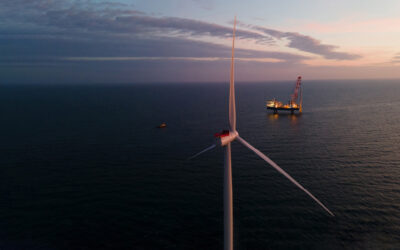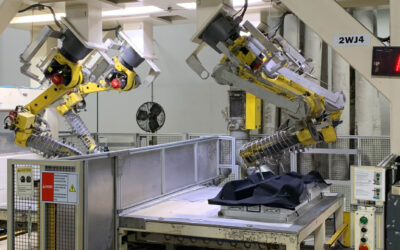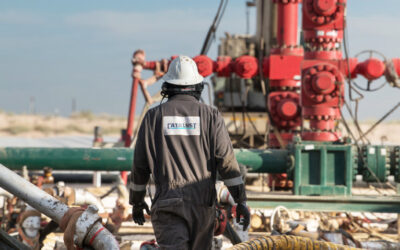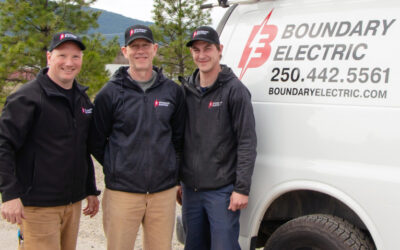Founded by Fred Dueck in 1994 in a rented 600-square-foot bay in Manitoba, Schnell Industries Inc., quickly found its footing in constructing and maintaining farm industry machinery.
Outgrowing its space, the company relocated to a 2,400-square-foot facility in 1997, followed by another move in 2002; an extension of 12,500 square feet in 2010; a 20,000-square-foot shop in 2013, with extra-wide shop doors, high ceilings, and overhead cranes; and finally, an additional 20,000 square feet added this year to boost assembly output of all the company’s product lines. At Schnell, the team takes promises seriously, and is able to handle any project that comes its way.
Opportunities to help
Big or small, every Schnell project is given the attention it deserves, with the company embracing the opportunity to help its clients get the quality and service they need.
“We’re a family type of business, so that’s the kind of service we provide,” says General Manager Brent Dueck. “We provide customer service based on relationships, so it’s about helping customers first and asking questions later. We have a lot of friendly, knowledgeable staff that come from many different backgrounds, whether hydraulics, electrical, structural, or design, so depending on the questions people bring forward, we have a lot of different resources to help our customers with,” he says.
While there is one dedicated customer service manager, any one of the company’s different departments brings the same level of assistance depending on what’s relevant.
“Obviously, without customer service we wouldn’t be here,” says Dueck. “We built our business up from good customer service. It started with my dad back in ’94. He was all about helping the customer first and making sure the job was done well and everything was fair so everybody was happy. That’s our motto. It has to make everybody happy, otherwise it doesn’t make sense to do it.”
That’s also the company’s approach when it comes to dealing with three dedicated product lines. Although roughly 50 to 60 percent of what Schnell does is sub-contract work for multiple different manufacturers that need more capacity, the company thrives on its niche market of products including transloaders, Sweep-All, and planter hitches, which Dueck refers to as the company’s long-time bread-and-butter.
“The planter hitch is something that was designed here and we ended up patenting it,” he says. “It’s turned out to be a very good product.”
Planting is one of the most crucial tasks farmers and agricultural businesses do, and to ensure the work is done effectively and efficiently, having the best available tools is vital. Schnell’s conversion planter hitch does away with expensive modifications to tractors or planters, making existing equipment more adaptable and powerful.
“It’s a niche market,” Dueck says. “All the products that we build for our product lines are niche markets in a sense. Our planter hitch is only for farmers that grow crops like corn or soybeans. They’re the only ones who actually have the equipment that our hitches are used on.”
While it may be niche, it’s a market that exists because other big companies simply can’t offer what Schnell is providing with its unique hitch. “It’s been a great market, and it’s the easiest-selling product we build. Either the farmer needs it or doesn’t. If he needs it, he’s calling us. We’re the only manufacturer of that product because it’s patented and exclusive to us.”
While this means there’s essentially no competition, Dueck says the product is priced fairly and built well, and Schnell follows up to ensure any issues are taken care of.
Taking the load
The company’s transloader conveyors are essential pieces of machinery that enable quick, effective loading and unloading for items shipped via several modes of transportation, and also act as a safe transition from one container to another, preventing spills and waste. The biggest products Schnell builds, transloaders have held steady for the company since 2014.
“It’s a market that isn’t just for the oil and gas industries, as frack sand was, which is what the transloader was originally designed for,” says Dueck. “We sell these now anywhere that they load or unload granular product from rail cars or into rail cars.”
This versatile product does have competition, but Dueck says Schnell’s product is top of the class in this product line, with more attention to detail, better performance, and higher-quality components within the machine.
“It’s a nice sealed machine that doesn’t seem to have a lot of dust issues,” he says. “We’re just trying to make things more user-friendly with our product. It has very high capacity on some of the machines that our competition struggles to compete with, so that’s been one of our selling points.”
Sweeping the turf
Finally, the company’s Sweep-All line runs within Schnell Industries, but is a somewhat separate entity with its own website, sales team, and assembly department.
An opportunity that arose about six years ago led to Schnell buying a small, struggling company, turning it around and making it profitable, resulting in a very high-end turf sweeper product able to collect grass clippings, leaves, acorns, pine needles, apples, trash, gravel, twigs, and aeration plugs, to name a few, plus clean and sweep, dethatch, and core aerate.
While there are some similar products on the market, none has quite the wide work range of Sweep-All, says Dueck.
“As a whole, it’s another niche market,” he adds. “Not every homeowner is going to buy one. They’re pricey, but there are also high-quality components on there.”
Sweep-Alls are hand-built and assembled at the company’s Winkler facility, ensuring quality from start to finish, and are probably the company’s fastest-growing product line, Dueck says.
Training as opportunity
Along with quality products, Schnell also offers some unique training programs to young welders looking to gain experience in a real-life setting.
Although many companies have struggled with labour shortages, Schnell’s “significant” growth over the past few years has made sourcing experienced welders a challenge. Tackling the issue, the company decided to find young guys out of school and train them. Potential candidates entered into an open-ended, no-commitment deal for two sessions of two hours, experiencing real-life welding at the Schnell facility.
“Usually after the first test we could tell if they were worth bringing back a second time or not,” Dueck says. “Think of it like doing cuts on a team: you pick the best out of the young guys and say, ‘come back for another two-hour session.’”
A Schnell welding supervisor worked alongside them, giving points and tips and tricks before then leaving them alone for half an hour to do their own thing.
“That’s our biggest thing with welding—getting people to relax. People perform way better when they’re relaxed and we try to provide a relaxed atmosphere so they can just settle down and do their thing.”
These sessions have provided roughly 25 to 30 percent success rates of those who “made the cut” and are now full-time employees. But even those not chosen walk away with some free and useful experience gained in a real-life scenario.
“This is the real world, this is the big welding shop,” Dueck says. “We put them in a safe corner away from all the commotion in the building, but it gives them the real vibes. Some guys can’t handle it, but for some guys it’s just natural.”
Once hired, the welders still have to prove themselves, but the hands-on training jump-starts their confidence and readiness to grow. “It’s one of the more challenging positions we hire for,” Dueck says. “There’s a lot of raw talent a person needs. It’s not just tightening a nut and bolt. There’s more to it than that.”
And it’s an important factor in Schnell’s overall success. The company needs roughly 60 to 70 percent more welding staff than assembly staff to build any one of its specific products.
Going bigger
Currently sitting at 50 employees, Schnell just came through a big transition phase from being a good small company to being on the large side of small companies, says Dueck, with more growth coming in the next three months, including a dozen or so new staff for some big contracts coming up.
“We’ve got our eyes on some goals,” he says. These include a dedicated shop that processes all its steel instead of relying on other companies’ laser and water jet-cut parts, machining, torch, and plasma work, and powder coating, all of which is currently outsourced.
“We’re very good at the welding, we’re very good at the assembly, the diagnostics, the hydraulics, and the electrical,” says Dueck. “We’re very good at designing a machine and assembling and welding it, but some of the processes to get it there we’re still working on. That’s what we want to bring in-house over the next little while.”
These goals will mean a larger building and more employees, he says, in part to handle ongoing product-line growth, particularly for Sweep-All, which has experienced 40 percent growth each year for the last three years.
“We’re very diverse in that way,” he says. “We’re not bulletproof, nobody is, but we’re very stable. So hopefully that growth can continue to happen and we can expand as needed.”
Doubling up
The company has already doubled the size of its building in the last year, creating one of the biggest challenges—and most stressful experiences—of Dueck’s career, with supply chain issues, work disruptions, and tight deadlines, but the building was completed virtually on time.
“It was a month overdue, but I wasn’t going to complain,” he says. “I was terrified I was going to be six months overdue which would have really hurt us. Working with our contractor to find solutions and work through all of the funny issues was a challenge and an accomplishment that we managed to somehow pull out of the hat.”
Along with an ability to get things done, what else sets Schnell Industries apart from similar companies?
“I’m trying to think, are there similar companies out there?” says Dueck. “We do such a wide variety of products and builds. Yes, some companies do that, but we also actually still do a lot of custom work.”
That custom work could mean a literal walk-in order, he says, with a customer driving up and ordering a variety of lengths of steel. “We do that; we’re very diverse that way. There are two other companies in this town that do that, but I’ve got a lot of family throughout the U.S. and Canada and they say there just aren’t places that do big-time production and still take care of the small farmer. That’s us.”
Taking care of the small as well as the big needs is a point of pride for Schnell. “If you stop in tomorrow and say you need certain mesh or something for a little fire pit project in your backyard, we help you out with that.”
Saying yes
Providing that home family feeling is a big part of what makes Schnell the success it is, particularly when it comes to relationships.
“It’s just the ability to say, ‘sure, we can do that.’ We’ve tackled projects probably about three times bigger than our plant size here. We’ve done some stuff that’s been a little bit over-the-top, very big, crazy stressful,” he laughs. “Big-time equipment and at the same time, we’re building these little sweeps. People ask, ‘wow, how do you even make that work, make the big stuff and the little stuff?’ but it’s [thanks to] an attitude of, ‘don’t say no.’ If we feel we can do it, we’ll do it.”
That includes having an open mind, approaching everything with a different perspective and not sticking to just one product, he adds. “Variety is our thing.”

